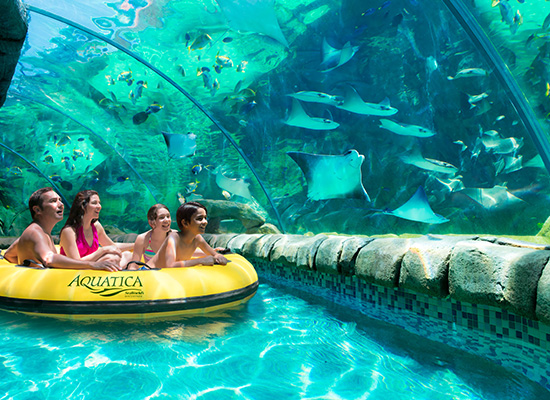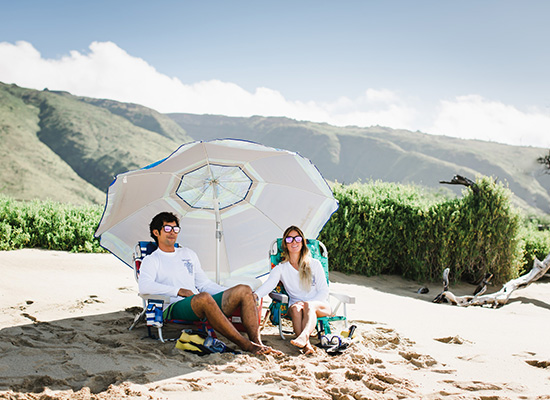August 12th, 2019
Move over Millennials, Gen Z (18-35 year olds) is coming! As Millennials move into leadership positions at their jobs, begin to buy homes, and have families, Gen Z is right behind them, entering the workforce or in the early years of their careers. In fact, by 2020 Gen Z will be the largest generation of consumers.
Many of the characteristics of Gen Z have been passed down to them by the Millennials, from the reliance on technology and being constantly connected, to preferring to communicate online through social media platforms like Facebook, Instagram, and YouTube. Like Millennials they also prefer experiences over material goods.
This “experiential” trend is expected to continue and grow as Gen Zers begin to accumulate disposable income. Travel brands are in a unique position to capitalize on this trend because travel is the “ultimate experience.”
The key lies in creating incentives that appeal to this trend, meet the unique needs of this new generation and then marketing them through the appropriate online channels to reach Gen Zers.
Experiential Programs and Gen Z
Understanding the motivation of Gen Z travelers can help you to better create experiential programs that can influence their decision making process.
Gen Z are not interested in generic programs with one-size-fits-all rewards. Like Millennials, they want to be recognized as individuals and want rewards that are personalized and relevant to their needs and journey. Remember, this generation is all about experiences. They’re less interested in “platinum status” and more interested in activities and experiences.
If you can deliver, they will be loyal to your brand. However, they also want brands that they are interested in to be loyal to them as well. That means understanding their preferences, needs and desires, and catering to them in a personalized way.
One approach that will improve your brand’s image with Gen Z travelers is to segment your rewards program to offer different, more targeted rewards to different customer segments. This form of personalization will work across generational lines. Make sure any rewards you do offer have high conversion rates and margins, both to appeal to Gen Z travelers, and increase revenues and profitability.
Understanding the reward types that resonate with Gen Z travelers is the key. Always remember that it’s experience that drives their motivation, and behavior.
Gen Z By The Numbers
There’s been a lot of research studies conducted into what motivates Gen Z – from the food they eat, to how and when they’ll buy a house. When it comes to travel, there’s been plenty of research there too! Here are some of the numbers:
- Gen Zers take about three leisure trips every year. When they do, they tend to be experiential.
- Gen Z has an estimated $143 billing in spending power. They are most likely to spend this on experience based travel. This number is expected to grow in the coming years.
- Studies have shown that around 66% of Gen Zers choose spending on experiences over “stuff.”
- 85% Gen Zers are more likely to share photos of experiences on social media rather than photos of something they’ve purchased.
Many experts believe that this growing trend toward experiencial travel may be driven by social media, or FOMO – the fear of missing out. Whatever is driving the quest for experience, travel brands are in a unique position to deliver and capitalize on this growing trend. A recent study found that 95% of consumers under the age of 40 prefer getting points or cashback on travel – think miles or points toward specific experiences. This is the aspect of a loyalty program that most appeals to this demographic.
One example of a major chain adopting a program like this is the Marriott Bonvoy’s “Moments” program, which allows and encourages members to use points toward experiences like glamping at Coachella.
Another is working with a company like Xplorie. They provide guests with daily free activities packages that managed travel properties can provide at no charge to guests. On a local level, this can be anything like free museum entry, to a free day of parasailing, or a discount on ski lift tickets and rentals. This can work to create and then leverage guest loyalty. By implementing a dynamic loyalty program on the local level, you can increase repeat business with younger travelers at a time when they are developing traveling patterns and favorite destinations that will carry through life.
Stay tuned for Gen Z Travel Trends Part 2 . . . .
August 12th, 2019
Move over Millennials, Gen Z (18-35 year olds) is coming! As Millennials move into leadership positions at their jobs, begin to buy homes, and have families, Gen Z is right behind them, entering the workforce or in the early years of their careers. In fact, by 2020 Gen Z will be the largest generation of consumers.
Many of the characteristics of Gen Z have been passed down to them by the Millennials, from the reliance on technology and being constantly connected, to preferring to communicate online through social media platforms like Facebook, Instagram, and YouTube. Like Millennials they also prefer experiences over material goods.
This “experiential” trend is expected to continue and grow as Gen Zers begin to accumulate disposable income. Travel brands are in a unique position to capitalize on this trend because travel is the “ultimate experience.”
The key lies in creating incentives that appeal to this trend, meet the unique needs of this new generation and then marketing them through the appropriate online channels to reach Gen Zers.
Experiential Programs and Gen Z
Understanding the motivation of Gen Z travelers can help you to better create experiential programs that can influence their decision making process.
Gen Z are not interested in generic programs with one-size-fits-all rewards. Like Millennials, they want to be recognized as individuals and want rewards that are personalized and relevant to their needs and journey. Remember, this generation is all about experiences. They’re less interested in “platinum status” and more interested in activities and experiences.
If you can deliver, they will be loyal to your brand. However, they also want brands that they are interested in to be loyal to them as well. That means understanding their preferences, needs and desires, and catering to them in a personalized way.
One approach that will improve your brand’s image with Gen Z travelers is to segment your rewards program to offer different, more targeted rewards to different customer segments. This form of personalization will work across generational lines. Make sure any rewards you do offer have high conversion rates and margins, both to appeal to Gen Z travelers, and increase revenues and profitability.
Understanding the reward types that resonate with Gen Z travelers is the key. Always remember that it’s experience that drives their motivation, and behavior.
Gen Z By The Numbers
There’s been a lot of research studies conducted into what motivates Gen Z – from the food they eat, to how and when they’ll buy a house. When it comes to travel, there’s been plenty of research there too! Here are some of the numbers:
- Gen Zers take about three leisure trips every year. When they do, they tend to be experiential.
- Gen Z has an estimated $143 billing in spending power. They are most likely to spend this on experience based travel. This number is expected to grow in the coming years.
- Studies have shown that around 66% of Gen Zers choose spending on experiences over “stuff.”
- 85% Gen Zers are more likely to share photos of experiences on social media rather than photos of something they’ve purchased.
Many experts believe that this growing trend toward experiencial travel may be driven by social media, or FOMO – the fear of missing out. Whatever is driving the quest for experience, travel brands are in a unique position to deliver and capitalize on this growing trend. A recent study found that 95% of consumers under the age of 40 prefer getting points or cashback on travel – think miles or points toward specific experiences. This is the aspect of a loyalty program that most appeals to this demographic.
One example of a major chain adopting a program like this is the Marriott Bonvoy’s “Moments” program, which allows and encourages members to use points toward experiences like glamping at Coachella.
Another is working with a company like Xplorie. They provide guests with daily free activities packages that managed travel properties can provide at no charge to guests. On a local level, this can be anything like free museum entry, to a free day of parasailing, or a discount on ski lift tickets and rentals. This can work to create and then leverage guest loyalty. By implementing a dynamic loyalty program on the local level, you can increase repeat business with younger travelers at a time when they are developing traveling patterns and favorite destinations that will carry through life.
Stay tuned for Gen Z Travel Trends Part 2 . . . .
Content



